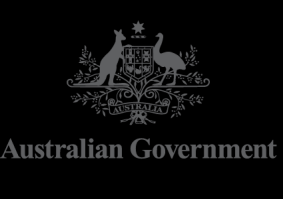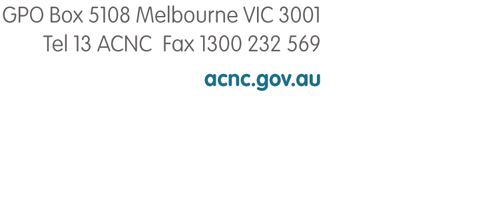



OFFICIAL
15 October 2025
Our ref: FOI 2026Q1R13
Attn: FOI Applicant
By email only:
xxxxxxxxxxxxxxxxxxxxxxxxxx@xxxxxxxxxxx.xxx.xx
Dear Applicant,
Freedom of information request – Notice of Decision
1. I have made a decision about access to information you requested under the
Freedom of
Information Act 1982 (Cth) (
FOI Act).
2. I am authorised under subsection 23(1) of the FOI Act to make decisions in relation to FOI
requests made to the Australian Charities and Not-for-Profits Commission (
ACNC).
Scope of request
3. In your correspondence to the ACNC dated 16 September 2025, you requested access to:
copies of complaints, dated 7 October 2023 through to 16 September 2025, against registered
charities for promoting or encouraging the war in Gaza.
4. On 24 September 2025, I acknowledged, and noted the impact Division 150 of the
Australian
Charities and Not-for-Profits Commission Act 2012 (Cth) (
ACNC Act) may have on, your
request.
5. In response to my acknowledgement email your queried whether changing the scope of your
request would lead to a different result. On 25 September 2025, I explained that Division 150
of the ACNC Act is likely to apply to any documents which relate to the affairs of specific
charities. No response was received to this correspondence.
6. I therefore accept that your request is unchanged and remains as set out in your email of 16
September 2025.
OFFICIAL


OFFICIAL
Steps taken to identify documents and information
7. I reached out to the ACNC’s Compliance directorate for documents which the ACNC may
hold within the scope of your request. The Compliance directorate is responsible for
processing complaints and therefore is most likely to hold any documents within the scope of
your request.
8. I requested that an officer from the Compliance directorate thoroughly search their records
for any relevant documents.
Decision on access
9. I have decided to refuse you access to any documents which the ACNC may hold within the
scope of your FOI request.
10. I have found that any documents within the scope of your request would be ‘protected ACNC
information’ and conditionally exempt from release, in accordance with section 47E(d) of the
FOI Act.
11. The term ‘protected ACNC information’ is defined at section 150-15 of the ACNC Act as
information that:
(a) was disclosed or obtained under or for the purposes of the Act; and
(b) relates to the affairs of an entity; and
(c) identifies, or is reasonably capable of being used to identify, the entity.
12. Subsection 150-25(2) of the ACNC Act prohibits the disclosure of protected ACNC
information
to anyone other than:
(a) the entity to whom the information relates;
(b) an agent of that entity; or
(c) a responsible entity of that registered entity.
OFFICIAL
link to page 3 link to page 3


OFFICIAL
13. Under section 150-25 of the ACNC Act, unauthorised disclosure of protected ACNC
information attracts a penalty of ‘imprisonment for two years or 120 penalty units, or both for
the person who discloses the information’.
14. You are not listed demonstrated that you are a Responsible Pers
on1 or an agent (for
example a lawyer or tax agent) for any specific charity, it would be an offence to disclose
protected ACNC information about any specific charity to you.
15. More detailed reasons are provided below.
Material taken into account
16. I have taken the following material into account in making my decision:
(a) the terms of your FOI request;
(b) the relevant provisions of the FOI Act, particularly:
(i)
Section 3 (Objects);
(ii)
Section 11A (Access to documents on request);
(iii)
Section 11B (Public interest exemptions – factors); and
(iv)
Paragraph 47E(d) (Public interest conditional exemptions – certain operations of
agencies).
(c) Division 150 of the ACNC Act (the secrecy provisions); and
(d) the guidelines issued by the Australian Information Commissioner under section 93A of the FOI
Act (
Guidelines) particularly:
(i)
Part 3 – Processing and deciding on requests for access; and
(ii)
Part 6 – Conditional exem
ptions.2
1 The ACNC refers to ‘responsible entity’ as ‘responsible person’.
2 Office of the Australian Information Commissioner,
FOI Guidelines (April 2025),
<https://www.oaic.gov.au/freedom-
of-information/freedom-of-information-guidance-for-government-agencies/foi-guidelines>.
OFFICIAL
link to page 4


OFFICIAL
Reasons for refusing to provide access
Subsection 47E(d) – substantial adverse effect on certain operations of an agency
17. Subsection 47E(d) of the FOI Act provides that a document is conditionally exempt if ‘its
disclosure would, or could reasonably be expected to … have a substantial adverse effect on
the proper and efficient conduct of the operations of an agency.’
18. I confirm the ACNC is an ‘agency’ for the purposes of the FOI Act
.3
19. The ACNC relies on charities to provide it with information of a confidential nature to properly
and efficiently carry out its powers and functions under the ACNC Act. For example, a
charity:
(a) must provide extensive information to enable the ACNC to assess the charity’s entitlement to be
registered under the ACNC Act;
(b) must provide up to date details of its Responsible Persons; and
(c) may be required to provide sensitive information, if the ACNC is investigating a charity’s
compliance with its obligations.
20. Paragraph 11.3 of the
Australian Charities and Not-for-profits Commission Bill 2012 Revised
Explanatory Memorandum states: ‘[e]ngagement with and the trust of the not-for-profit (
NFP)
sector could be at risk if responsible entities and registered entities do not have confidence
that their information is being handled appropriately, which would, in turn obstruct the ACNC
in undertaking its powers and functions under the Bill.’
21. The ACNC also relies on engagement from the general public to ensure it is able to carry out
is stated purposes and functions. Such engagement may take the form of concerns raised to
the ACNC by the members of the public. The ‘Commissioner’s Policy Statement: Complaints
about charities’ states that a complaint, the personal information of a complainant, and any
3
Freedom of Information Act 1982 (Cth) (
FOI Act)
s 4.
OFFICIAL
link to page 5 link to page 5


OFFICIAL
details relating to the charity are ‘protected ACNC information’ under Division 150 of the
ACNC Act
.4
22. If the ACNC is unable to assure charities and members of the public that information they
provide to the ACNC will be treated confidentially, charities and individuals may be less
forthcoming in providing the ACNC with the information it needs to effectively administer the
ACNC Act.
23. It would severely undermine the ACNC’s ability to comply with its obligations to administer
the ACNC Act if protected ACNC information were to be released under the F
OI Act.5
24. Placing ACNC officers in direct conflict with their obligations under the ACNC Act, potentially
interrupting the supply of information required to effectively administer that Act, and creating
a situation where the ACNC cannot operate in the way Parliament intended it to, would, in
my view, have a substantial adverse effect on the proper and efficient conduct of the
operations of the ACNC.
25. As such, I find any documents which the ACNC may hold within the scope of your request
conditionally exempt from release under subsection 47E(d) of the FOI Act.
Public interest test
26. Subsection 47E(d) of the FOI Act is a conditional exemption. Subsection 11A(5) of the FOI
Act confirms information, which is conditionally exempt, may still be disclosed unless
disclosure would be contrary to the public interest.
27. In assessing whether the disclosure of this information would be contrary to the public
interest, I have considered the following factors favouring access listed at subsection 11B(3)
of the FOI Act:
4 Australian Charities and Not-for-profits Commission ‘Commissioner’s Policy Statement: Complaints About Charities’
(May 2021) at [6]
<https://www.acnc.gov.au/about/corporate-information/corporate-policies/commissioners-policy-
statement-complaints-about-charities>. 5
Josh Taylor and Australian Charities and Not-For-Profits Commission (Freedom of information) [2020] AICmr 13;
and
Graham Mahony and Australian Charities and Not-for-profits Commission (Freedom of information) [2019] AICmr
64.
OFFICIAL
link to page 6


OFFICIAL
(a) Promoting the objects of the FOI Act;
(b) Informing debate on a matter of public importance;
(c) Promoting the effective oversight of public expenditure; and
(d) Allowing a person to access his or her own personal information.
28. I have also considered the public interest factors listed at paragraph 6.231 of the Guidelines
which would tend to suggest that disclosure is in the public interest. I find that the only factor
favouring disclosure applicable to any documents that may be within the scope of your
request is that disclosure would:
(a) promote the objects of the FOI Act, particularly:
(i)
to increase recognition that information held by the Government is to be managed for
public purposes and is a national resource; and
(ii)
to facilitate and promote public access to information, promptly and at the lowest
reasonable
cost.6
29. Paragraph 6.233 of the Guidelines lists factors that might indicate that disclosure of
information is contrary to the public interest. The factors include where disclosure could:
(a) reasonably be expected to impede the flow of information to the ACNC (as a regulatory agency)
(Paragraph 6.233(g) of the Guidelines);
(b) reasonably be expected to prejudice the ACNC’s ability to obtain confidential information
(Paragraph 6.233(h) of the Guidelines);
(c) reasonably be expected to prejudice the ACNC’s ability to obtain similar information in the future
(Paragraph 6.233(i) of the Guidelines).
30. In balancing these factors, I am satisfied that disclosure of the type of documents you have
requested would be contrary to the public interest. I consider that the legitimate interests of
6 FOI Act ss 3(3) – (4).
OFFICIAL



OFFICIAL
the charitable sector in keeping information confidential would be unfairly and unreasonably
prejudiced if disclosure of such information were to be made under the FOI Act.
31. In making this decision, I have not considered any of the irrelevant factors listed in
subsection 11B(4) of the FOI Act.
Review Rights
32. In accordance with paragraph 26(1)(c) of the FOI Act, a statement setting out your rights of
review under the FOI Act is attached.
Yours sincerely,
Freedom of Information Officer
OFFICIAL


OFFICIAL
Your review rights
If you are dissatisfied with my decision, you may apply to the ACNC for an internal review or to the
Australian Information Commissioner for an external review.
Internal review
Under section 54 of the FOI Act, you may apply to the ACNC for an internal review of my decision in one
of the following ways:
by email:
xxx@xxxx.xxx.xx
by post:
Freedom of Information Contact Officer
Australian Charities and Not-for-profits Commission
GPO Box 5108, Melbourne VIC 3001
An application for internal review must be made in writing within 30 days of the date of this letter. Where
possible, please include reasons why you believe review of the decision is necessary. The internal review
decision will be made by another ACNC officer within 30 days of receiving your application for internal
review. Please quote
FOI 2026Q1R13 when lodging your application.
Australian Information Commissioner review
Under section 54L of the FOI Act, you may apply to the Australian Information Commissioner to review my
decision. An application for review by the Australian Information Commissioner must be made in writing
within 60 days of the date of this letter, and be made in the following ways:
online:
https://webform.oaic.gov.au/prod?entitytype=ICReview&layoutcode=ICReviewWF
by email:
xxxxx@xxxx.xxx.xx
More information about Australian Information Commissioner review is available on the Office of the
Australian Information Commissioner website:
https://www.oaic.gov.au/freedom-of-information/your-
freedom-of-information-rights/freedom-of-information-reviews Complaints
Any complaint about the processing of your FOI request can be directed to either the Australian
Information Commissioner or the Commonwealth Ombudsman. The complaint should set out the grounds
on which you consider the action should be investigated. Complaints can be made in writing, by phone, or
by using an online form available from their respective websites.
Australian Information Commissioner contact details:
•
https://webform.oaic.gov.au/prod?entitytype=Complaint&layoutcode=FOIComplaintWF
•
xxxxx@xxxx.xxx.xx • Director of FOI Dispute Resolution at GPO Box 5288, Sydney NSW 2001
Ombudsman contact details:
•
https://forms.ombudsman.gov.au/prod?entitytype=Approach&layoutcode=ApproachWebForm • 1300 362 072 (calls from mobile phones at mobile phone rates)
• Commonwealth Ombudsman at GPO Box 442, Canberra ACT 2601
•
https://www.ombudsman.gov.au/contact-us
OFFICIAL


















